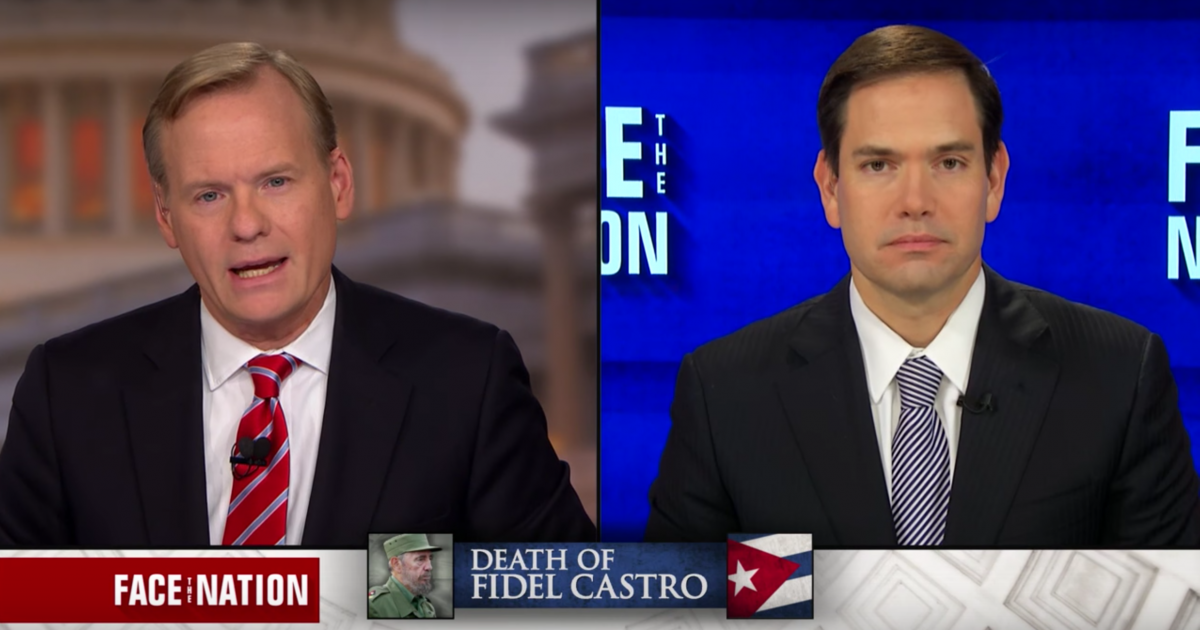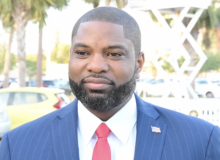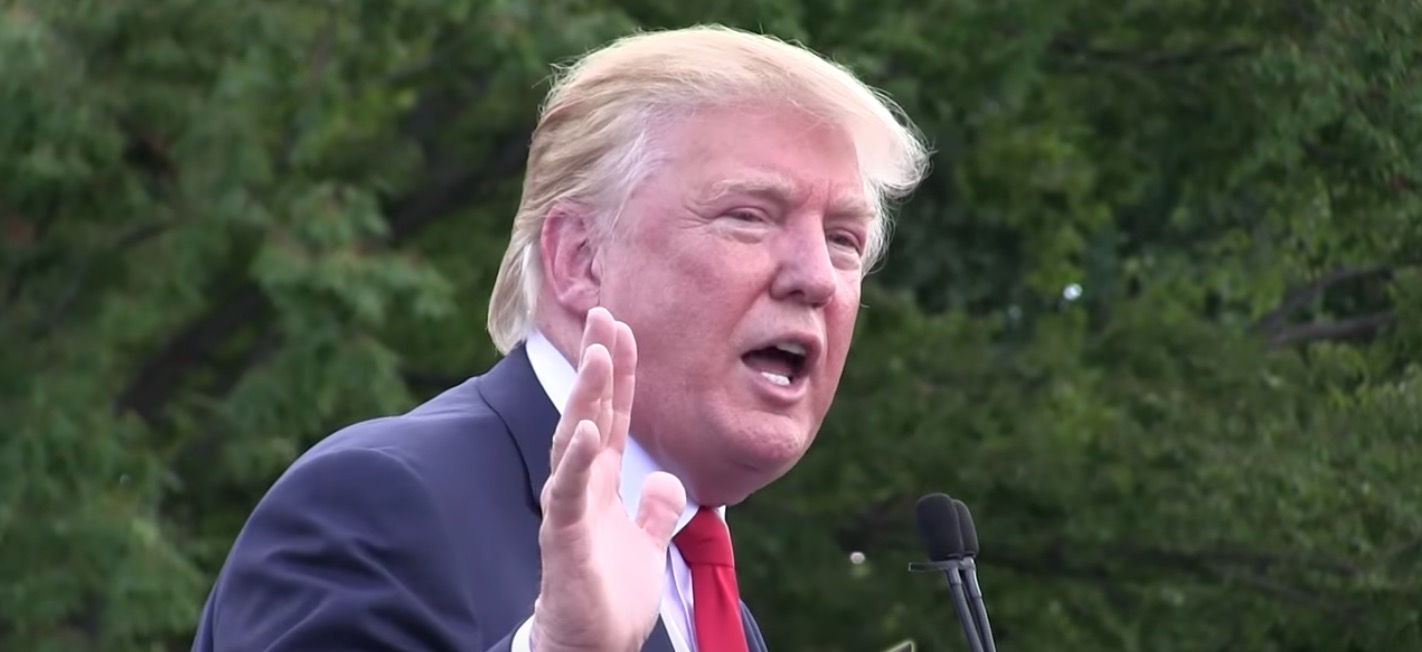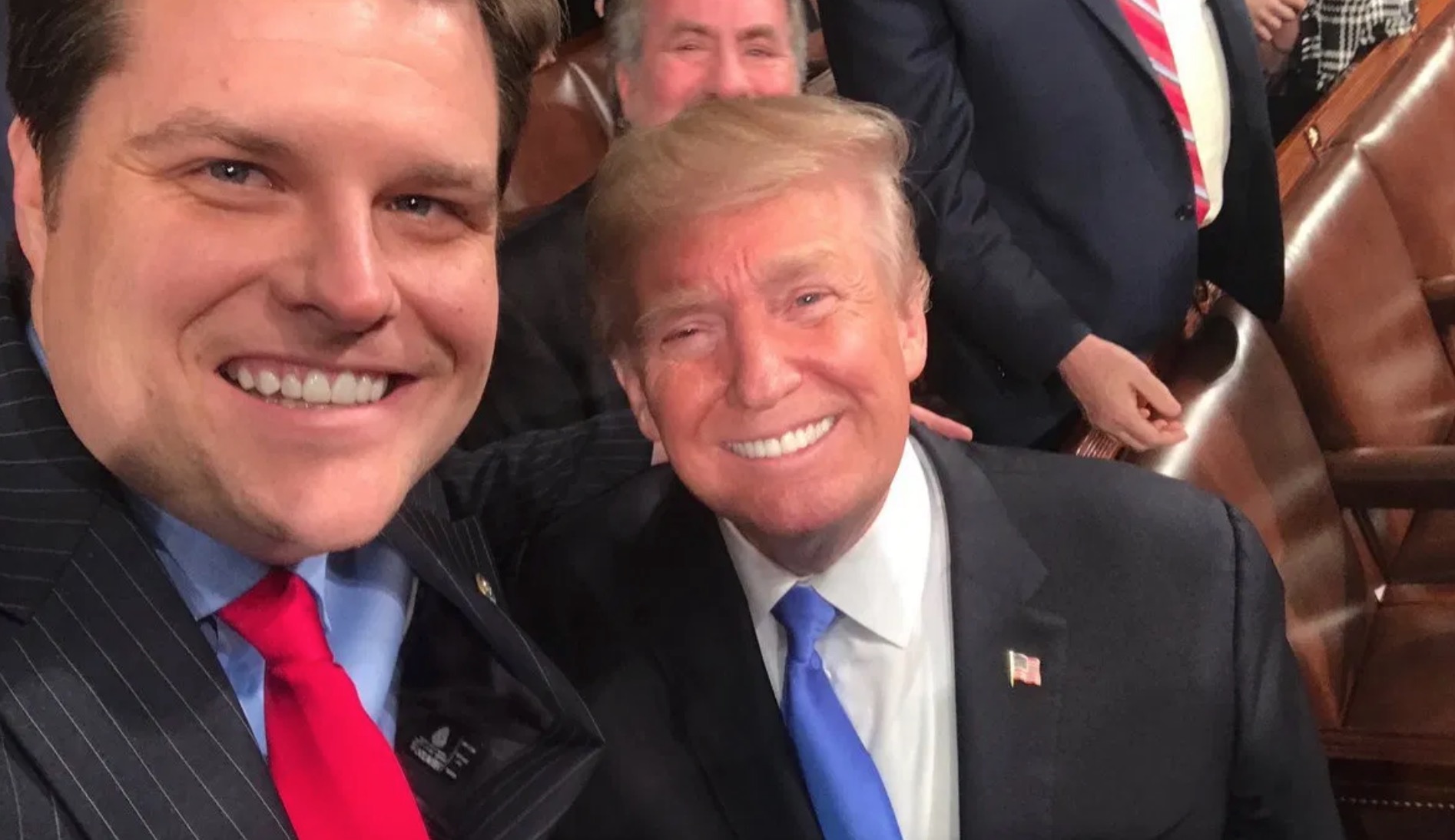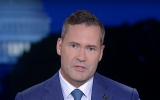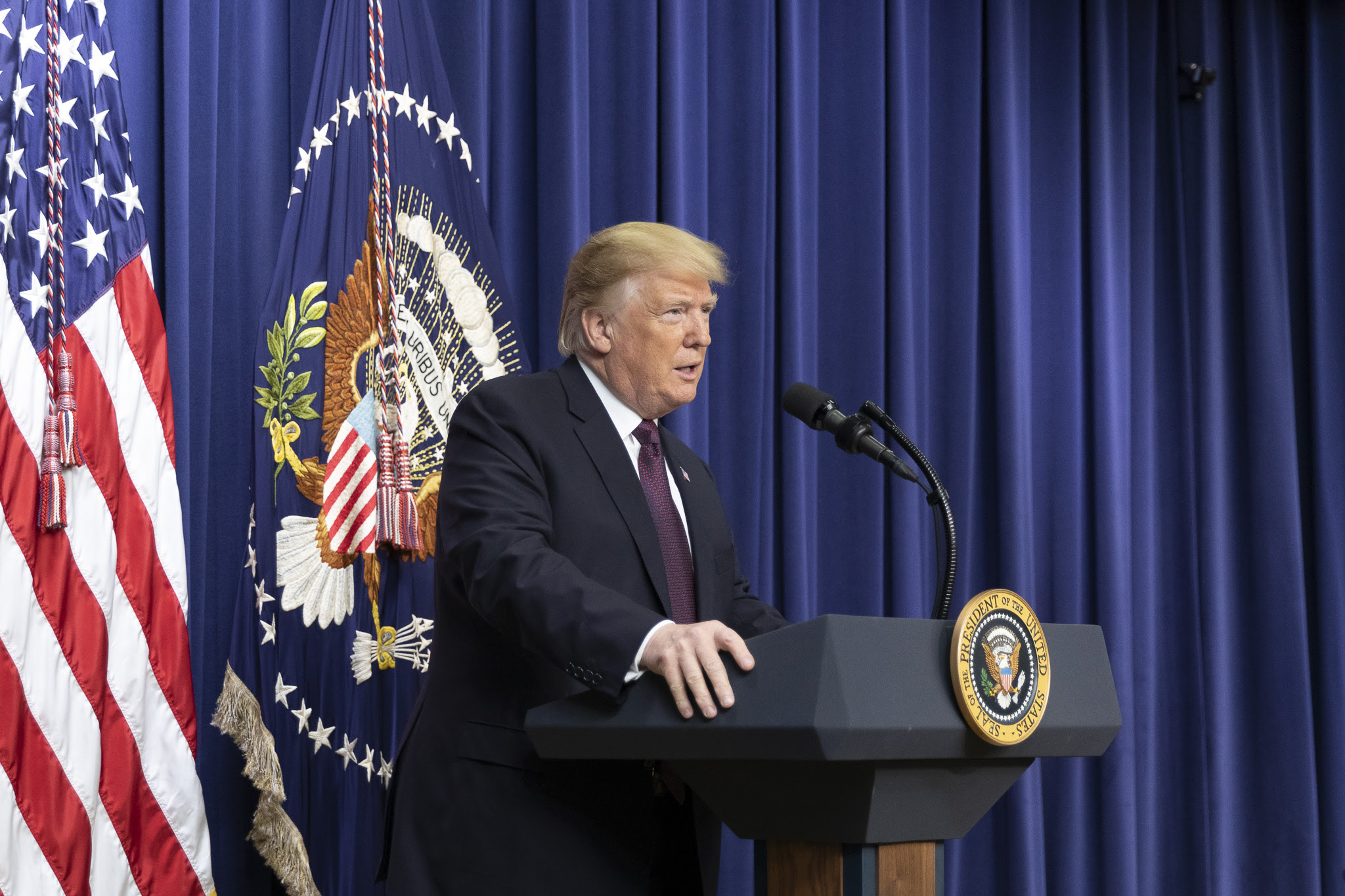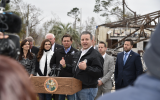This weekend, Cubans in Miami celebrated the death of Fidel Castro in front of the Versailles restaurant on 8th street. Many people in attendance held up Donald Trump signs, which brings to mind how the United States’ relationship with Cuba will be moving forward with Raul Castro and President-elect Donald Trump set to be inaugurated on January 20th.
Senator Marco Rubio went on CBS’ Face the Nation and discussed this issue with John Dickerson.When asked what he’d like to see change between U.S.-Cuba relations, Rubio said that he’d “like to see more of a democratic opening on the island of Cuba. Things like, I don’t know, free press. Stop putting people in jail because they don’t agree with you politically. Stop helping countries like North Korea evade UN sanctions. Don’t invite the Russians to open a military base 90 miles from our shores.
Allow independent political parties to be able to function. You know, the kinds of things that you find in virtually every country in the Western hemisphere except Cuba and now increasingly Venezuela. That’s what I’d like to see. And I’d like to see our foreign policy geared towards accelerating that.
Do you think the 2nd Amendment will be destroyed by the Biden Administration?(2)
One more point, I’d like to see Cuba send back to the United States all these fugitives of American justice that they are harboring, including the killer of a New Jersey state trooper, Joanne Chesimard, who’s been in there for almost three decades, harbored and protected by the Cuban government.”
Dickerson then mentioned that President-elect Trump had called Fidel Castro a brutal dictator, but Trump had not renewed his promise to reverse Obama’s executive order to reopen relations between both countries. Trump also hasn’t mentioned an embargo.
Rubio commented that what he thinks “we need to do is understand our number one obligation is to act in the national interest of the United States of America. I believe it is in our national interest to see democracy take hold on the island of Cuba. And so we should examine our foreign policy, including all of the changes that President Obama made, through — in that lens and through that lens.”


